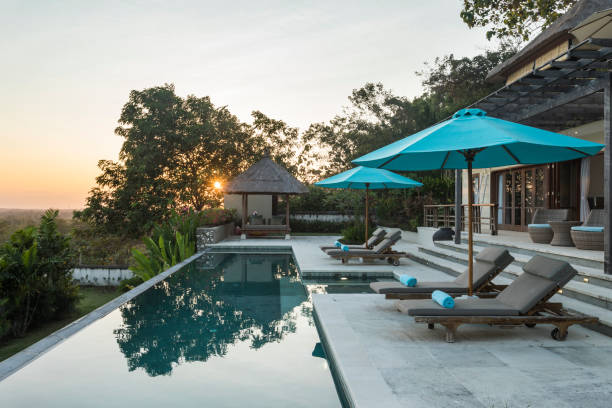Bali Building Regulations Guide: Everything You Need to Know Before You Build



Planning to build in Bali? Whether you are a foreign investor, property developer, or individual homeowner, understanding Bali’s building regulations is crucial for ensuring your project is compliant with local laws. At The Bali Lawyer, we provide clear, expert legal support to help you navigate every stage of the construction process — from permits to zoning to compliance with local planning rules.
This comprehensive guide will walk you through Bali’s essential building regulations and help you understand how to legally and successfully build in Bali.
Understanding the Legal Framework for Building in Bali
Building regulations in Bali fall under Indonesian national laws, local government rules (Perda), and zoning plans known as RTRW (Rencana Tata Ruang Wilayah). Every project — whether residential, commercial, or hospitality-based — must align with these legal frameworks. Failure to comply can result in construction delays, fines, demolition orders, or long-term legal disputes.
It is essential to understand that regulations may vary from one regency to another (e.g., Badung, Denpasar, Gianyar). Working with a legal professional based in Bali ensures that you receive advice tailored to your specific location and project type.
Key Permits and Licenses Required for Building in Bali
Land Ownership Verification
Before beginning any construction, you must verify that the land is legally owned and that the title type permits building. Common land titles include:Hak Milik (Freehold) – only available to Indonesian citizens.
Hak Pakai (Right to Use) – can be used by foreigners under specific conditions.
Hak Guna Bangunan (Right to Build) – commonly used for foreign investors via PT PMA.
Zoning and Land Use Suitability (Kesesuaian Kegiatan Pemanfaatan Ruang – KKPR)
Before applying for a building permit, you must ensure that the land is zoned for your intended use (residential, tourism, commercial, etc.).Building Permit (PBG – Persetujuan Bangunan Gedung)
Formerly known as IMB, the PBG is the official approval to construct a building. It ensures that your design complies with architectural, environmental, and technical standards.Environmental Approval (UKL-UPL or AMDAL)
For larger or commercial projects, environmental approvals are required. This includes environmental impact assessments and sustainability reviews.Construction Supervision and Completion Certificates
Once construction begins, it must be supervised by a licensed architect or engineer. After completion, you must obtain the SLF (Sertifikat Laik Fungsi) or Building Function Certificate before using or renting the building.
Zoning Regulations and Land Use Planning
Zoning regulations in Bali are complex and evolving. The local zoning plan (RTRW) dictates:
What type of development is allowed in each area.
Maximum building height.
Green space requirements.
Setback from roads and rivers.
Cultural and religious restrictions near temples or sacred sites.
Failure to comply with zoning laws can result in denied permits or future demolition orders. Zoning is especially sensitive in areas designated for tourism, conservation, or religious use.
Building Height, Design, and Structural Guidelines
Building Height Limits
In many areas of Bali, especially in the southern region (like Seminyak and Canggu), buildings are restricted to a maximum height of 15 meters or the height of a coconut tree. Height limits aim to preserve the island’s cultural and natural aesthetics.Architectural Compliance
Bali’s cultural regulations often require buildings to adhere to traditional architectural styles, particularly for villas, hotels, and public structures. Balinese Hindu elements such as aling-aling (spiritual barriers) and pelinggih(shrines) may be mandated.Structural Safety
All constructions must meet seismic safety standards, particularly because Indonesia is located in an earthquake-prone region. A licensed engineer must approve foundation and structural plans.
Common Challenges for Foreigners Building in Bali
Foreigners face several restrictions and legal nuances when building in Bali. Some of the main challenges include:
Land ownership limitations: Foreign nationals cannot directly own freehold land.
Title structure complexities: Many opt to use a PT PMA to legally build and hold land with the Right to Build (HGB).
Leasehold risks: Building on leased land requires legal contracts that protect your investment for the full lease term.
Changing regulations: Indonesian building laws and permit systems have evolved rapidly in recent years, particularly after the implementation of the Omnibus Law.
To mitigate these risks, always consult a qualified legal team like The Bali Lawyer before acquiring land or starting construction.
The Importance of Due Diligence Before Building
Legal due diligence ensures that the land is free of disputes, the zoning matches your intentions, and the seller holds a valid certificate. A proper legal review should include:
Land certificate checks.
Verification of previous permits or restrictions.
Community agreement in traditional or adat areas.
Confirmation that land is not in a disaster-prone or protected zone.
Building without proper due diligence can result in major losses or lawsuits.
Sustainable and Eco-Friendly Building Regulations
Bali is actively promoting sustainable development. New regulations and community guidelines encourage:
Use of environmentally friendly materials.
Rainwater collection systems.
Wastewater treatment facilities.
Solar panel installation.
Failure to implement environmentally responsible designs can result in denied environmental clearance or future operating challenges.
Post-Construction Legal Requirements
After construction is completed, the building must be certified as fit for use. This includes:
SLF (Sertifikat Laik Fungsi): Certificate stating the building is structurally and legally suitable for its intended use.
Business Licensing: If the building will operate as a villa, hotel, or other commercial property, you must obtain NIB and other operational licenses.
Tax Registration: For rental or business purposes, property tax and income tax registration is required.
Why Work with The Bali Lawyer
Navigating Bali’s building regulations requires local legal knowledge, clear planning, and expert documentation. At The Bali Lawyer, we specialize in helping foreign investors, developers, and homeowners with every legal aspect of property development. Our services include:
Land due diligence
PT PMA setup
Permit applications (PBG, SLF, NIB)
Legal compliance with zoning and architectural rules
Long-term lease or ownership structures for foreigners
With a team based in Bali and years of experience, we provide personalized support and ensure your project moves forward legally and efficiently.
Build Smart, Build Legally
Building in Bali offers incredible opportunities — from dream villas to successful commercial properties — but only if done legally and strategically. Understanding and following Bali’s building regulations is essential for protecting your investment, avoiding delays, and ensuring long-term success.
At The Bali Lawyer, we help you build with confidence. Contact us today for a consultation and let us guide you through the legal framework of building in Bali.
Contact The Bali Lawyer
Let’s make your building project a reality — legally, safely, and efficiently.
